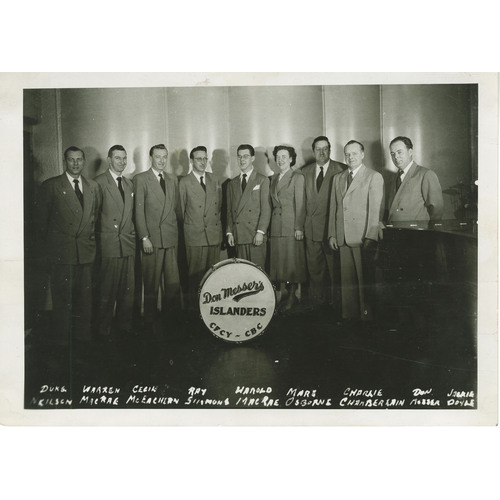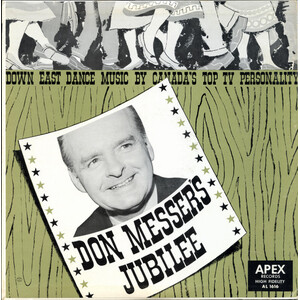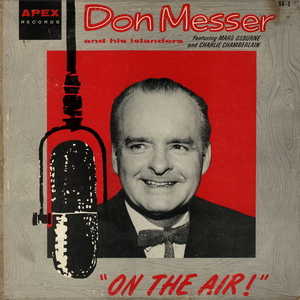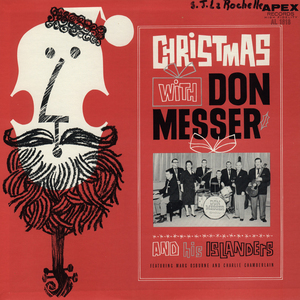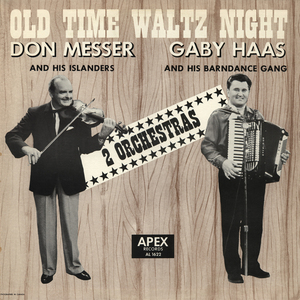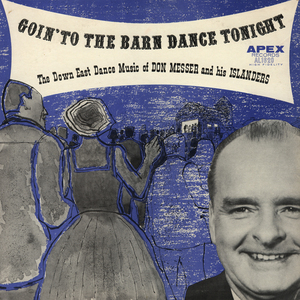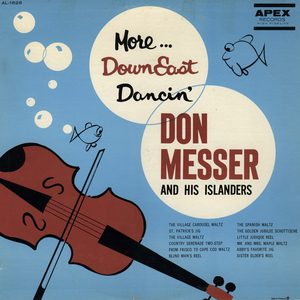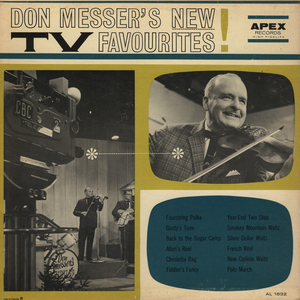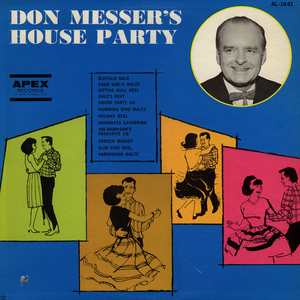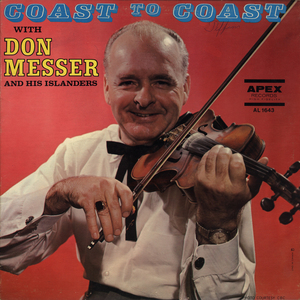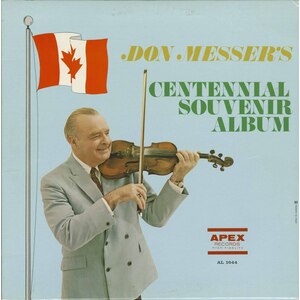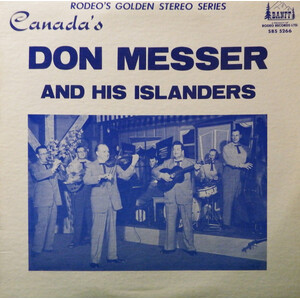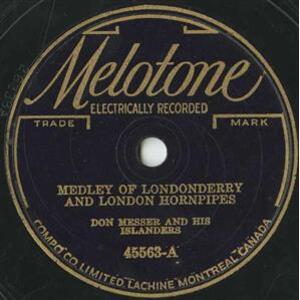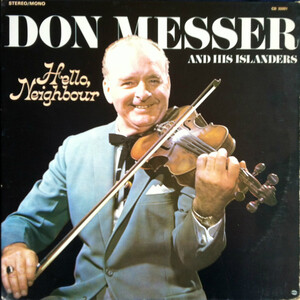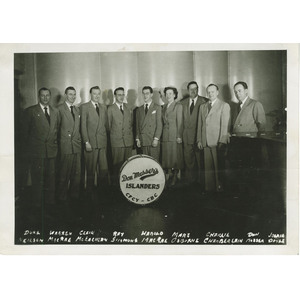Messer, Don & His Islanders
Websites:
No
Origin:
Tweedside, New Brunswick, 🇨🇦
Biography:
Don Messer (1909–1973) was one of the most beloved figures in Canadian musical history, a fiddler whose simple, melodic style became the heartbeat of Maritime folk music for generations. Born in Tweedside, New Brunswick, Messer began playing violin at the age of five, deeply influenced by the traditional tunes of his family and community. By the time he was seven, he was performing publicly, and his youthful talent soon earned him a strong regional reputation as a master of jigs, reels, and breakdowns.
In 1929, Messer began broadcasting on CHSJ radio in Saint John, New Brunswick, leading a group initially known as The New Brunswick Lumberjacks. His friendly, down-home approach and infectious fiddle tunes quickly gained a following, and by 1939, he had relocated to Charlottetown, Prince Edward Island, where he formed his long-running band, Don Messer & His Islanders. The group would soon become a household name across Canada.
With regular broadcasts on CBC radio, Messer’s music reached a national audience during the 1940s and 1950s. His signature style—crisp, rhythmic, and faithful to traditional dance music—stood out in a period when popular music was rapidly evolving. While much of the world was embracing modern pop and rock, Messer remained dedicated to the tunes that had filled kitchens, barns, and dance halls across the Maritimes for generations.
In 1957, Don Messer made the leap to television with Don Messer’s Jubilee on CBC. Originally a regional program, it was quickly picked up for national broadcast in 1959, becoming one of the most-watched shows in Canadian television history. Only Hockey Night in Canada rivaled its popularity during the 1960s. The show featured a regular cast that included vocalist Charlie Chamberlain, singer Marg Osburne, pianist Waldo Munro, clarinetist Rae Simmons, bassist "Duke" Neilsen, drummer Warren MacRae, and a rotating cast of guest performers. Together, they presented a uniquely Canadian variety show built around Messer’s steady fiddle, easygoing humor, and timeless melodies.
The Jubilee’s weekly broadcasts became a kind of national kitchen party, offering comfort and familiarity to viewers from coast to coast. The program introduced countless Canadians to traditional music and launched the careers of several major artists, including Anne Murray, who first appeared on its summer replacement series Singalong Jubilee. Messer’s Jubilee became not just entertainment, but part of the cultural fabric of mid-century Canada.
When CBC abruptly canceled the program in 1969, public reaction was swift and passionate. Protests, petitions, and even political debates erupted across the country in defense of Messer and his Islanders, underscoring the deep affection Canadians held for his music and its place in their national identity.
Throughout his career, Messer recorded prolifically, producing dozens of albums for labels such as Rodeo and Banff. He and his band toured extensively, including a high-profile Centennial tour in 1967 that brought their music to audiences across Canada.
Don Messer passed away in 1973, but his legacy endures. His fiddle playing remains a touchstone for Canadian folk musicians, and his recordings continue to be celebrated for their warmth, precision, and joyful spirit. Decades after his passing, Don Messer & His Islanders are still recognized as central figures in preserving and popularizing Canada’s rich fiddle tradition.
-Robert Williston
